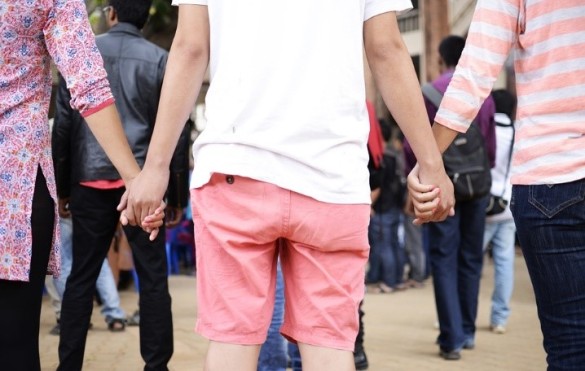
By Anna Salomon Pasapera
Copy Edited by: Lizbeth Yorio and Dominique Croons
Research Edited by: Sean Cotnam
Format edited by: Arthur Carlton-Jones
The issue of racism and prejudice is an increasing issue in the United States. The U.S. is one of the most diverse countries in the world, and it is important that we treat everyone as equals, regardless of race or ethnicity. Throughout history, Latinos in America have been portrayed as criminals, unintelligent, lazy workers, and illegal by the media. Now, this has stretched to drug dealers and rapists. The impacts that stereotypes and prejudice have against Hispanics are huge and can vary from something as vast as creating international conflict, to loss of employment and depression for the victims of the discrimination.
Not All Stereotypes Are Bad?
Some people argue that not all stereotypes are bad. However, those who make this argument most likely have never experienced discrimination themselves or, have never had any direct involvement with it. In this country, that category consists of mostly white males or, those in the upper class, and sometimes politicians. There are times when stereotypes are used to put people into a category; according to an article by Heidi Burgess, the groups they belong to are used to help people make educated inferences about how those people will behave based on their grouping.[1] Making these inferences can be helpful in human interaction. Generalizations about a group can aid people in determining what kind of behavior is appropriate or not with certain groups. Stereotypes can be seen as a good thing as long as they are accurate, it is when they are incorrect that they tend to be a problem.
The more common argument is that stereotypes are unacceptable at all times. According to the article “Impact Of Latino Stereotypes: Latin Americans Viewed Most Negatively In Immigrant Comparison Study” by Sarah Gates from the Huffington Post, Latino stereotypes can have a significantly negative impact on the way people view immigration.[2] Discriminating against others because of their race can be very disrespectful and hurtful regardless of the purpose. Whether a stereotypical statement is offensive or not should be up to the group being patronized. Most of the time these groups find these comments insulting and demeaning. According to the Migration Policy Institute, stereotypes can cost people their jobs, and consequently their homes and opportunities at a successful life. This opinion is held mostly by the more liberal population and those who have experienced discrimination first hand.
My Side
As someone who has experienced discrimination multiple times throughout my life, I stand behind the argument that stereotypes are never ok. Although they may have good intentions, and are not trying to be negative, I think that any form of classifying people is not right, especially if we are trying to be a country that promotes equality. Hispanics are the fastest growing minority groups in the US, and deserve to be treated as a part of this country being that they will soon make up a significant chunk of the population. Any type of grouping can be hurtful to people, even if it isn’t negative. Nobody should be able to tell other people what group they belong to, or to make generalizations about them. More often than not, stereotypes are found to be degrading and can cause more harm than good.
The Bottom Line
The bottom line is that prejudice against any group, in this case Latinos, is inappropriate and should be addressed immediately. Like Judith Cofer Ortiz said in her well written personal essay, “The Myth of the Latin Woman: I Just Met a Girl Named Maria”, “I hope the stories I tell, the dreams and fears I examine in my work, can achieve some universal truth which will get my audience past the particulars of my skin color, my accent, or my clothes.”[3] Cofer, like many Latinos, agrees that we are more than just a skin color, and she claims that the only way to change people’s divisive perceptions, is to replace these ideals with a “set of realities”. Abolishing stereotypes in this country should be of top priority due to the large amount of diversity. I think that it is important for this nation, as well as for individual citizens, to act as one to be successful.